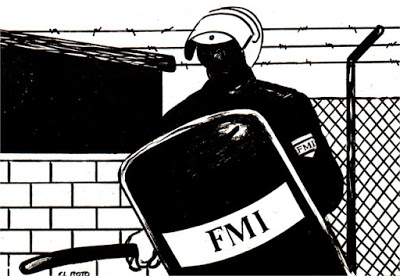Alberto Fernández, who will assume as the next president in less than two weeks, has said he will not accept the next tranche of US$ 11billion that were part of the US$ 57 billion deal signed by the outgoing Macri administration. Many progressives see this as a good sign, in particular given the history of the IMF with Argentina. I've emphasized, against a lot of heterodox discussion on the subject, that the IMF remains essentially unchanged when it comes to policy prescriptions. So I do get the point.Note, however, that the best argument for not using it, is NOT the fact that this would increase the leverage with the IMF. It would hardly do that. It's kind of a slap on their face. The leverage comes from the fact that the IMF did commit a huge amount of money, and presumably they
Topics:
Matias Vernengo considers the following as important: American Hegemony, Argenitina, IMF
This could be interesting, too:
Matias Vernengo writes Milei’s Psycho Shock Therapy
Joel Eissenberg writes The end of the “American Century”
Matias Vernengo writes Currency substitution in Argentina
Matias Vernengo writes Argentina on the verge
Note, however, that the best argument for not using it, is NOT the fact that this would increase the leverage with the IMF. It would hardly do that. It's kind of a slap on their face. The leverage comes from the fact that the IMF did commit a huge amount of money, and presumably they knew this was not something that could be repaid under the circumstances that it was contracted. The reasons to accept it or not should be pragmatically associated to whether the country will need them to make the payments next year (and Argentina should negotiate to reduce and eliminate most of the payments, certainly with the IMF in the next few years). I assume that calculation has been made, and, hence, the decision. If Fernández, and his advisors, are hoping for a boost in exports, that might be a mistake.
Also, since someone in Colombia last week asked me whether Argentina should default (the person thought it was a no brainer), my simple reply is that this would be a terrible idea. Yes, the debt in foreign currency, that increased significantly in the Macri administration went to finance capital flight, and in many ways is questionable. And, for sure it was unnecessary, and should had been avoided. But to default implies to be cut from any sources of dollars, and that implies that one must ration imports, which implies by definition that a massive recession would take place. So the default should be avoided.
Note that the follow up question (same person), so why you need imports (of intermediary and capital goods). It's obviously a question of degree, but beyond advanced economies, all economies do need dollars, since it is the vehicle currency, and the one in which the key energy commodities are traded in. There's a reason for those 900 or so US military bases around the globe.
So, yep, not necessary to get the money, if the country doesn't need it for short term obligations. But if we do need it, then there's no shame in getting the next tranche, and negotiate strongly with the Fund.

